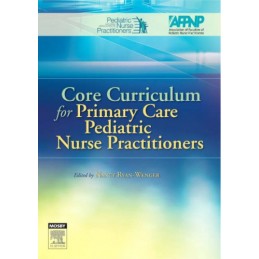Description
2007 AJN Book of the Year Award WinnerWritten by expert pediatric nurse practitioners, this resource is a fully endorsed compendium of essential information. Using an easy-to-use outline format, it defines the parameters of the specialty by outlining the entire scope of PNP practice and covers everything in the Pediatric Nurse Practitioners (PNP) certification exams. In light of the increase in the number of PNP programs and students seeking certification, Core Curriculum for Primary Pediatric Nurse Practitioners offers the big-picture view that every PNP needs.
Product Details
Reference
31647
EAN13
9780323027564
ISBN
9780323027564
Data sheet
Publication date
2006
Issue number
1
Cover
paperback
Pages count
1080
Dimensions (mm)
184 x 260
Weight (g)
1750
Section 1: Role of the Pediatric Nurse Practitioner Section 2: Health Assessment and Physical Examination Section 3: Special Topics in Health Promotion and Disease Prevention Section 4: Diagnosis and Management of Common Illness in Children and Adolescents Section 5: Diagnosis and Management of Chronic Conditions in Children and Adolescents Section 6: Diagnostic, Medication, and Treatment Guides for Children and Section 7: Using Evidence-Based Practice to Improve Outcomes in Outpatient Settings




 Delivery policy
Delivery policy
 Security policy
Security policy
 Return policy
Return policy
